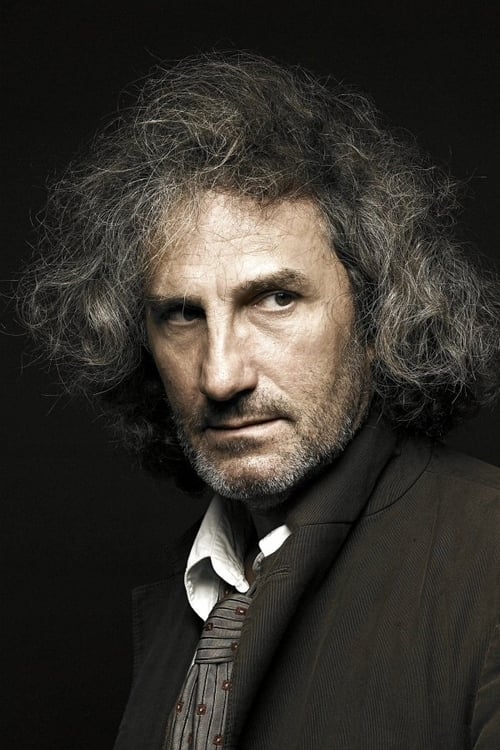
Screenplay
Three siblings comprise the latest generation in a family of puppeteers led with passion by their father. They are magicians of a kind, but can barely make ends meet, working mainly for the love of their craft. Their grandmother contributes too, not only as a seamstress but also as a repository of memories and wisdom. A tragic event will challenge the desire of each sibling to carry on.

Director
Three siblings comprise the latest generation in a family of puppeteers led with passion by their father. They are magicians of a kind, but can barely make ends meet, working mainly for the love of their craft. Their grandmother contributes too, not only as a seamstress but also as a repository of memories and wisdom. A tragic event will challenge the desire of each sibling to carry on.
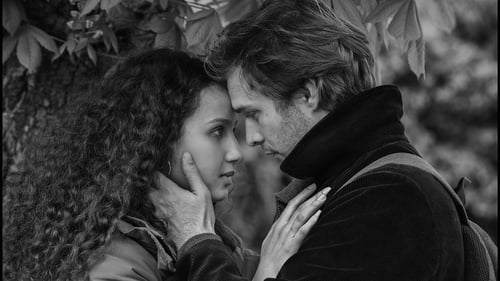
Dialogue
Luc travels to Paris for the first time to sit the entrance exam for a carpentry school. There he meets Djemila, a young worker with whom he enjoys a short romance, before returning to his home town and beginning a relationship with Geneviève, whom he has known since childhood. Caught between two passions, Luc runs, resolving to fulfil his father's dreams by devoting himself to his future... until finally, he experiences true love.

Screenplay
Luc travels to Paris for the first time to sit the entrance exam for a carpentry school. There he meets Djemila, a young worker with whom he enjoys a short romance, before returning to his home town and beginning a relationship with Geneviève, whom he has known since childhood. Caught between two passions, Luc runs, resolving to fulfil his father's dreams by devoting himself to his future... until finally, he experiences true love.

Director
Luc travels to Paris for the first time to sit the entrance exam for a carpentry school. There he meets Djemila, a young worker with whom he enjoys a short romance, before returning to his home town and beginning a relationship with Geneviève, whom he has known since childhood. Caught between two passions, Luc runs, resolving to fulfil his father's dreams by devoting himself to his future... until finally, he experiences true love.
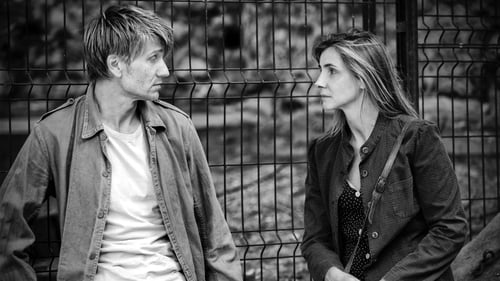
Writer
Pierre and Manon are poor. They make documentaries with nothing and they live by doing odd jobs. Pierre meets a young intern, Elisabeth, and she becomes his mistress. But Pierre will not leave Manon for Elisabeth; he wants to keep both.

Director
Pierre and Manon are poor. They make documentaries with nothing and they live by doing odd jobs. Pierre meets a young intern, Elisabeth, and she becomes his mistress. But Pierre will not leave Manon for Elisabeth; he wants to keep both.
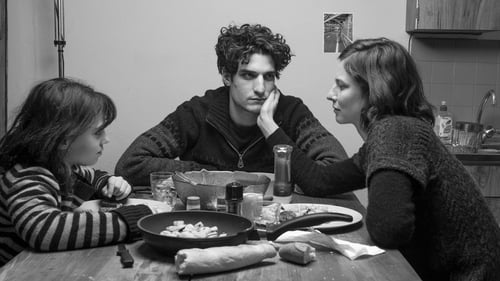
Screenplay
The professional and emotional cross-currents between two romantically entwined theater actors played by the director’s son Louis and Anna Mouglalis.

Director
The professional and emotional cross-currents between two romantically entwined theater actors played by the director’s son Louis and Anna Mouglalis.

Himself (voice)

Himself (voice)

Himself (voice)

Himself (voice)

Screenplay
Paul reflects on the summer he met Angèle and Frédéric as he watches his friend being laid to rest.

Director
Paul reflects on the summer he met Angèle and Frédéric as he watches his friend being laid to rest.

On the occasion of the 7th meetings of Digne, Pour un autre cinéma, organized by Pierre Queyrel and which presented a retrospective of Philippe Garrel's cinematographic work, this film is the sound recording of the discussion that the filmmaker made with the audience after the screening of his films Marie pour mémoire, Athanor, Voyage au jardin des morts and Le Bleu des origines.

Courant registered Garrel’s dialogues in order to produce his first urgent film, the first of his essays inquiring the state of current cinema. As a synthesis for the 20th century, Garrel invoked his relationship with Freud, Henri Langlois, Orson Welles, Marx, The Rolling Stones, Godard, Warhol, Picasso and Bergman and draw a territory in that different kind of cinema also inhabited by Courant’s art. Four years later –as a sequel, and a first example of Courant’s series– there was another meeting with Garrel, where again the filmmaker adds names related to his sensitivity, such as Murnau, Von Stroheim, the Lumière brothers, Abel Gance, Polanski, Rivette; the writers André Breton and Gabriele d’Annunzio; and the actresses Anna Karina, Nico, Zouzou and Maria Schneider –three stars of his films. (Diego Trerotola)

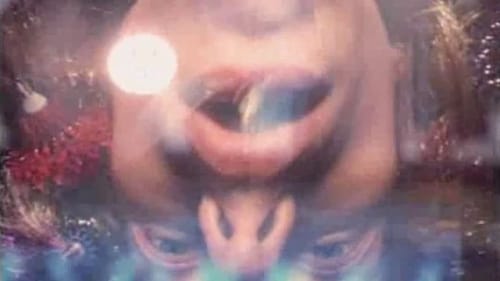
Himself
Over the course of more than fifteen years, Clémenti films a series of intimate diaries, starting from daily encounters. In La deuxième femme, we see Bulle Ogier and Viva, Nico and Tina Aumont, Philippe Garrel and Udo Kier, a performance by Béjart, a piece by Marc’O, concerts by Bob Marley and Patti Smith (not always recognisable)... It’s like a maelstrom of psychedelic images that are passed through a particle accelerator.
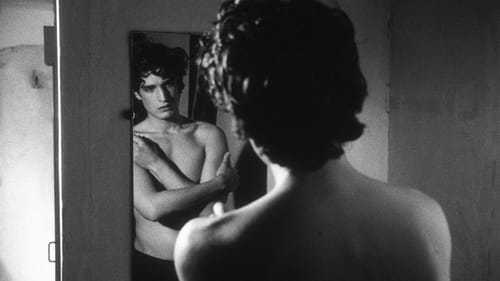
Screenplay
A celebrity is caught by her husband with a young lover.

Director
A celebrity is caught by her husband with a young lover.

Producer
In the aging orphanage the days pass very uneventfully, but the nights are something quite different; at least for Tim they are. The light reflected from the stars is the only cure for his fear of the dark. One night this fear leads him to the orphanage rooftop. Where he discovers that his favorite star has disappeared, and unfortunately it´s not going to be the last one. Tim also discovers...
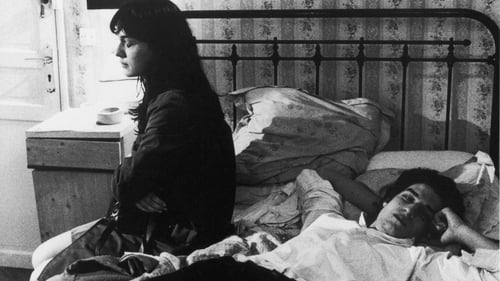
Screenplay
1968 and 1969 in Paris: during and after the student and trade union revolt. François is 20, a poet, dodging military service. He takes to the barricades, but won't throw a Molotov cocktail at the police. He smokes opium and talks about revolution with his friend, Antoine, who has an inheritance and a flat where François can stay. François meets Lilie, a sculptor who works at a foundry to support herself. They fall in love. A year passes; François continues to write, talk, smoke, and be with Lilie. Opportunities come to Lilie: what will she and François do?

Editor
1968 and 1969 in Paris: during and after the student and trade union revolt. François is 20, a poet, dodging military service. He takes to the barricades, but won't throw a Molotov cocktail at the police. He smokes opium and talks about revolution with his friend, Antoine, who has an inheritance and a flat where François can stay. François meets Lilie, a sculptor who works at a foundry to support herself. They fall in love. A year passes; François continues to write, talk, smoke, and be with Lilie. Opportunities come to Lilie: what will she and François do?

Director
1968 and 1969 in Paris: during and after the student and trade union revolt. François is 20, a poet, dodging military service. He takes to the barricades, but won't throw a Molotov cocktail at the police. He smokes opium and talks about revolution with his friend, Antoine, who has an inheritance and a flat where François can stay. François meets Lilie, a sculptor who works at a foundry to support herself. They fall in love. A year passes; François continues to write, talk, smoke, and be with Lilie. Opportunities come to Lilie: what will she and François do?

Screenplay
A movie director does a new film against heroin consumption, and the producers are heroin dealers.

Director
A movie director does a new film against heroin consumption, and the producers are heroin dealers.

Himself
30 years after their artistic revolution, members of the Zanzibar group meet in 1999 in Saint-Sulpice Square in Paris (France) in front of Gérard Courant's camera.

Philippe Garrel
Cited as “the best filmmaker of his generation” by directors ranging from Akerman to Benoît Jacquot, Philippe Garrel remains an alluring, somewhat enigmatic figure; this rare look at his world and his art was made right after the completion of his great “autobiographical tetralogy” that ended with The Phantom Heart.

Screenplay
A housewife's affair with a younger man goes nowhere.

Director
A housewife's affair with a younger man goes nowhere.
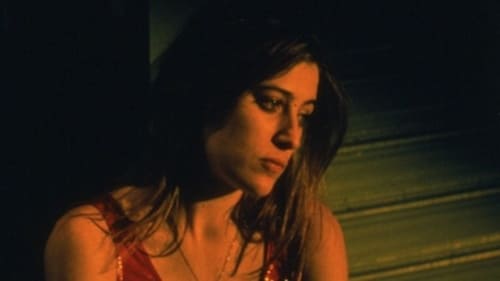
Writer
Philippe is a middle-aged painter, he lives with Annie : they have two kids. Just after they split up, Philippe meets Justine. He starts thinking about love, the relationship between former lovers..

Director
Philippe is a middle-aged painter, he lives with Annie : they have two kids. Just after they split up, Philippe meets Justine. He starts thinking about love, the relationship between former lovers..

Writer
The unhappy love lives of Paul and Marcus, two artists and friends who are neither particularly young or successful anymore.

Director
The unhappy love lives of Paul and Marcus, two artists and friends who are neither particularly young or successful anymore.
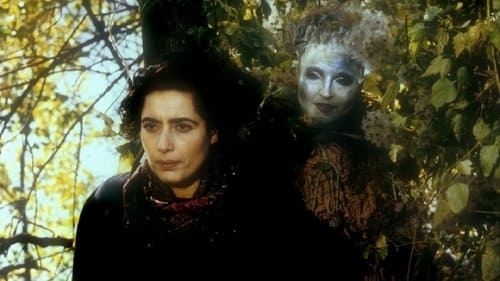
Le Fiancé d'Opra
An allegory of the Golem, a Jewish mythical creature personifying displacement and exile, this film tells the story of a woman (similar to the biblical Ruth) and her sisters, who are forced into exile after the death of their husbands. It is set in 1990s Paris, where the director was living in self-imposed exile following the ban on his 1982 documentary in Israel. The recurring theme of the film is migrations and unrooting, like the legendary Golem.

Screenplay
For those who were young, living under the delusions of love and soft drugs in Paris, May 1968 - even if the guitar is still playing, they can't hear it any longer.

Director
For those who were young, living under the delusions of love and soft drugs in Paris, May 1968 - even if the guitar is still playing, they can't hear it any longer.

Writer
The familiar conflicts of a film director planning to make a movie about his life and the confrontation he has with his wife, an actress who was turned down for such project in which she wanted to play herself.

Mathieu
The familiar conflicts of a film director planning to make a movie about his life and the confrontation he has with his wife, an actress who was turned down for such project in which she wanted to play herself.

Director
The familiar conflicts of a film director planning to make a movie about his life and the confrontation he has with his wife, an actress who was turned down for such project in which she wanted to play herself.
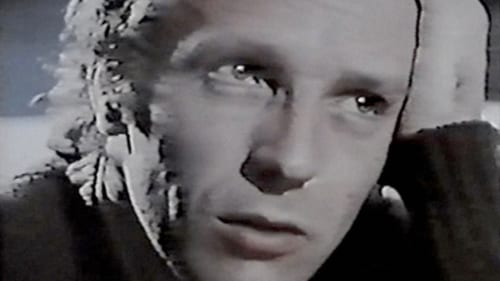
Director
Philippe Garrel’s documentary on France’s second wave of masterful filmmakers. Featuring Jean Eustache, Chantal Akerman, André Téchiné, Leos Carax, Jacques Doillon and Benoit Jacquot.

Director
"Clara, screenplay and dialogues of a Franco-Czechoslovak film, the co-director should have been the Czech filmmaker Kadar. Screenplay adaptated in 1989 by Philippe Garrel and students of the University of Paris X (Nanterre). The subject of the film - which is also a love story - is part of the political atmosphere, release the XXth Congress of the Soviet Communist Party has changed both individual for a certain way of seeing and understanding History: political trials, purges in Czechoslovakia, Hungary events of 1956, Algeria war, cold war." - KG

This thriller looks at the defection of a terrorist and focuses on frequent violence and repetitive sex scenes with full frontal nudity. Henri (Hubert Lucot) belongs to a terrorist gang that orders him to kill the sister of one of their members. The member himself died when he single-handedly carried out an attack on a carload of American military advisors in Paris. Henri balks at this assignment, since the gang only wants the sister assassinated because they believe that she would name them to the authorities. Instead of following through, Henri runs away, and the others soon follow in hot pursuit.
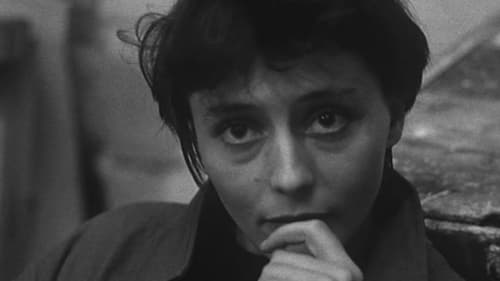
Editor
A young film director is turning a movie with his friend Christa. In the film-within-the-film there are two couples, one real, one imagined , and the film - told through five dreams - is as much the story of a film on-production, as the birth of a child.

Producer
A young film director is turning a movie with his friend Christa. In the film-within-the-film there are two couples, one real, one imagined , and the film - told through five dreams - is as much the story of a film on-production, as the birth of a child.

Screenplay
A young film director is turning a movie with his friend Christa. In the film-within-the-film there are two couples, one real, one imagined , and the film - told through five dreams - is as much the story of a film on-production, as the birth of a child.

A young film director is turning a movie with his friend Christa. In the film-within-the-film there are two couples, one real, one imagined , and the film - told through five dreams - is as much the story of a film on-production, as the birth of a child.

Director
A young film director is turning a movie with his friend Christa. In the film-within-the-film there are two couples, one real, one imagined , and the film - told through five dreams - is as much the story of a film on-production, as the birth of a child.

Editor
A man caught in the midst of the events of Algeria is experiencing a new but fleeting happiness with a young Algerian.

Screenplay
A man caught in the midst of the events of Algeria is experiencing a new but fleeting happiness with a young Algerian.

Director
A man caught in the midst of the events of Algeria is experiencing a new but fleeting happiness with a young Algerian.

Louis (segment 3)
Film comprised of six vignettes each illustrating one aspect of life in the French capital, each set in a different area of the city.

Director
Film comprised of six vignettes each illustrating one aspect of life in the French capital, each set in a different area of the city.
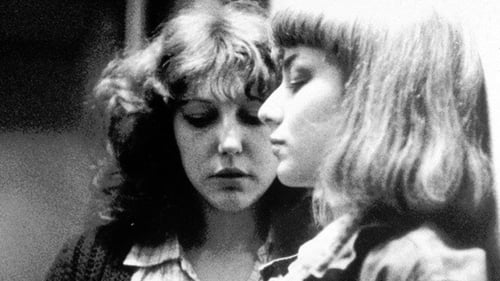
Psychiatric patient
Jean-Baptiste, a filmmaker, and Elie, an actress, fall in love. To fight their unhappiness, they cling to their children: Jean-Baptiste to his film and Elie to her young son.

Editor
Jean-Baptiste, a filmmaker, and Elie, an actress, fall in love. To fight their unhappiness, they cling to their children: Jean-Baptiste to his film and Elie to her young son.

Producer
Jean-Baptiste, a filmmaker, and Elie, an actress, fall in love. To fight their unhappiness, they cling to their children: Jean-Baptiste to his film and Elie to her young son.

Writer
Jean-Baptiste, a filmmaker, and Elie, an actress, fall in love. To fight their unhappiness, they cling to their children: Jean-Baptiste to his film and Elie to her young son.

Director
Jean-Baptiste, a filmmaker, and Elie, an actress, fall in love. To fight their unhappiness, they cling to their children: Jean-Baptiste to his film and Elie to her young son.

Himself
Jean Seberg, Philippe Garrel et Les Hautes solitudes is composed of excerpts from four of my films about Philippe Garrel which concern his silent masterpiece Les Hautes solitudes (1974) and its protagonist, the icon of the New Wave, Jean Seberg.

N°193
Reel 20 of Gérard Courant's on-going Cinematon series.

"This is the story of a search, that of a woman in pursuit of her own identity. This woman, Marie-Noëlle Kauffmann, ventures into the world of representation, meets four characters who, each in their own way, give her a key to cross the five sequences/initiations of the film which are all benchmarks that she must absolutely cross to have an answer to the question: Can cinema help find a lost balance?" -Gerard Courant

Director of Photography
A survival, silent black & white film shot with a hand camera, a journey into Philippe Garrel's intimate family album featuring the two women who counted in his cinematographic life: Nico and Zouzou.

Writer
A survival, silent black & white film shot with a hand camera, a journey into Philippe Garrel's intimate family album featuring the two women who counted in his cinematographic life: Nico and Zouzou.

Editor
A survival, silent black & white film shot with a hand camera, a journey into Philippe Garrel's intimate family album featuring the two women who counted in his cinematographic life: Nico and Zouzou.

Producer
A survival, silent black & white film shot with a hand camera, a journey into Philippe Garrel's intimate family album featuring the two women who counted in his cinematographic life: Nico and Zouzou.

A survival, silent black & white film shot with a hand camera, a journey into Philippe Garrel's intimate family album featuring the two women who counted in his cinematographic life: Nico and Zouzou.

Director
A survival, silent black & white film shot with a hand camera, a journey into Philippe Garrel's intimate family album featuring the two women who counted in his cinematographic life: Nico and Zouzou.
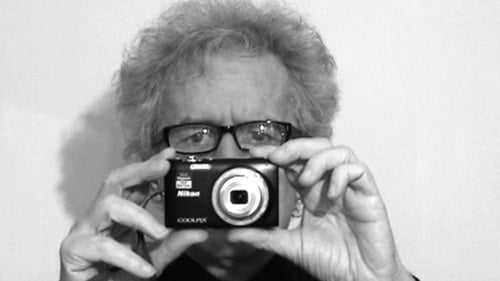
N°193
Cinématon is a 156-hour long experimental film by French director Gérard Courant. It was the longest film ever released until 2011. Composed over 36 years from 1978 until 2006, it consists of a series of over 2,821 silent vignettes (cinématons), each 3 minutes and 25 seconds long, of various celebrities, artists, journalists and friends of the director, each doing whatever they want for the allotted time. Subjects of the film include directors Barbet Schroeder, Nagisa Oshima, Volker Schlöndorff, Ken Loach, Benjamin Cuq, Youssef Chahine, Wim Wenders, Joseph Losey, Jean-Luc Godard, Samuel Fuller and Terry Gilliam, chess grandmaster Joël Lautier, and actors Roberto Benigni, Stéphane Audran, Julie Delpy and Lesley Chatterley. Gilliam is featured eating a 100-franc note, while Fuller smokes a cigar. Courant's favourite subject was a 7-month-old baby. The film was screened in its then-entirety in Avignon in November 2009 and was screened in Redondo Beach, CA on April 9, 2010.

Director of Photography
Love between Georges and Hypolyte has faded. George confides in Catherine that he is still obsessed with Hypolyte. He wishes that she was a virgin but since she is not, he wishes that she was dead.

Sound
Love between Georges and Hypolyte has faded. George confides in Catherine that he is still obsessed with Hypolyte. He wishes that she was a virgin but since she is not, he wishes that she was dead.

Editor
Love between Georges and Hypolyte has faded. George confides in Catherine that he is still obsessed with Hypolyte. He wishes that she was a virgin but since she is not, he wishes that she was dead.

Producer
Love between Georges and Hypolyte has faded. George confides in Catherine that he is still obsessed with Hypolyte. He wishes that she was a virgin but since she is not, he wishes that she was dead.

Writer
Love between Georges and Hypolyte has faded. George confides in Catherine that he is still obsessed with Hypolyte. He wishes that she was a virgin but since she is not, he wishes that she was dead.

Director
Love between Georges and Hypolyte has faded. George confides in Catherine that he is still obsessed with Hypolyte. He wishes that she was a virgin but since she is not, he wishes that she was dead.
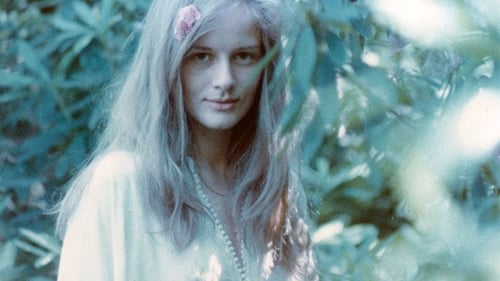
Editor
An androgynous poet/dreamer sits and writes and meditates on the aching void that is her life.

Cinematography
An androgynous poet/dreamer sits and writes and meditates on the aching void that is her life.

Writer
An androgynous poet/dreamer sits and writes and meditates on the aching void that is her life.

Producer
An androgynous poet/dreamer sits and writes and meditates on the aching void that is her life.

An androgynous poet/dreamer sits and writes and meditates on the aching void that is her life.

Director
An androgynous poet/dreamer sits and writes and meditates on the aching void that is her life.

Editor
Nico is an ethereal poet haunting the gaps between scenes of Jean-Pierre Kalfon, Bulle Ogier, Laurent Terzieff, and Garrel’s father, Maurice, discussing the filmmaker’s staple topics: love, psychoanalysis, and the failures of May ’68.

Cinematography
Nico is an ethereal poet haunting the gaps between scenes of Jean-Pierre Kalfon, Bulle Ogier, Laurent Terzieff, and Garrel’s father, Maurice, discussing the filmmaker’s staple topics: love, psychoanalysis, and the failures of May ’68.

Producer
Nico is an ethereal poet haunting the gaps between scenes of Jean-Pierre Kalfon, Bulle Ogier, Laurent Terzieff, and Garrel’s father, Maurice, discussing the filmmaker’s staple topics: love, psychoanalysis, and the failures of May ’68.

Writer
Nico is an ethereal poet haunting the gaps between scenes of Jean-Pierre Kalfon, Bulle Ogier, Laurent Terzieff, and Garrel’s father, Maurice, discussing the filmmaker’s staple topics: love, psychoanalysis, and the failures of May ’68.

Director
Nico is an ethereal poet haunting the gaps between scenes of Jean-Pierre Kalfon, Bulle Ogier, Laurent Terzieff, and Garrel’s father, Maurice, discussing the filmmaker’s staple topics: love, psychoanalysis, and the failures of May ’68.

Director of Photography
A personal portrait of the American actress Jean Seberg.

Scenario Writer
A personal portrait of the American actress Jean Seberg.

Editor
A personal portrait of the American actress Jean Seberg.

Producer
A personal portrait of the American actress Jean Seberg.

Director
A personal portrait of the American actress Jean Seberg.
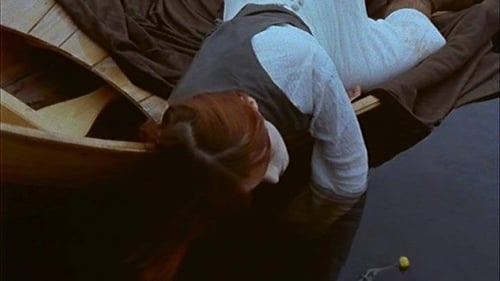
Editor
Athanor (Nico) is searching for fire. A flame is always at the foreground. Nico naked in tombs, looking at herself in circular mirrors, Nico in castles, keeper of the fire. Nico and Musky as medieval princesses. Athanor is a film about fire.

Producer
Athanor (Nico) is searching for fire. A flame is always at the foreground. Nico naked in tombs, looking at herself in circular mirrors, Nico in castles, keeper of the fire. Nico and Musky as medieval princesses. Athanor is a film about fire.

Writer
Athanor (Nico) is searching for fire. A flame is always at the foreground. Nico naked in tombs, looking at herself in circular mirrors, Nico in castles, keeper of the fire. Nico and Musky as medieval princesses. Athanor is a film about fire.

Director
Athanor (Nico) is searching for fire. A flame is always at the foreground. Nico naked in tombs, looking at herself in circular mirrors, Nico in castles, keeper of the fire. Nico and Musky as medieval princesses. Athanor is a film about fire.
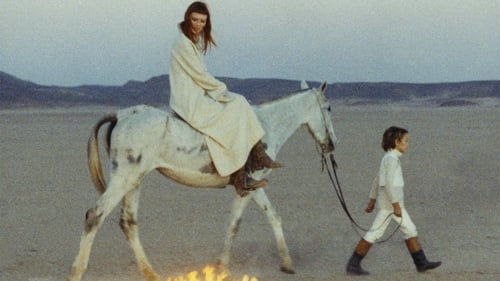
Editor
A composition of symbolic, surreal and almost mystic images.

Producer
A composition of symbolic, surreal and almost mystic images.

Writer
A composition of symbolic, surreal and almost mystic images.

Man / Devil
A composition of symbolic, surreal and almost mystic images.

Director
A composition of symbolic, surreal and almost mystic images.
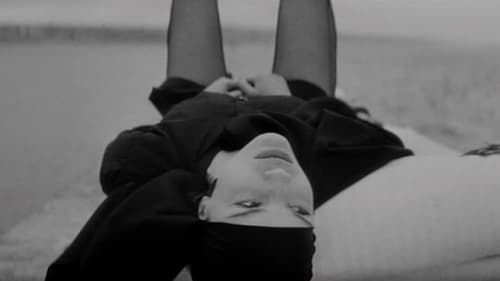
Sound
30 year old child enters the new city, riding on a donkey. He says he is the Savior. He has spent no time among men. He is trembling with cold. His clothes are soaked. His mother was overprotective ; his father conspicuously absent. He knows that he must face the mockery, refusal, ignorance and blindness of the men around him. They travel in gangs, in large numbers : soldiers, mercenaries or the like, on majestic, imposing horses. Everything is out of proportion to his thin, bewildered, innocent body ; he is the madman of the new city...

Editor
30 year old child enters the new city, riding on a donkey. He says he is the Savior. He has spent no time among men. He is trembling with cold. His clothes are soaked. His mother was overprotective ; his father conspicuously absent. He knows that he must face the mockery, refusal, ignorance and blindness of the men around him. They travel in gangs, in large numbers : soldiers, mercenaries or the like, on majestic, imposing horses. Everything is out of proportion to his thin, bewildered, innocent body ; he is the madman of the new city...

Producer
30 year old child enters the new city, riding on a donkey. He says he is the Savior. He has spent no time among men. He is trembling with cold. His clothes are soaked. His mother was overprotective ; his father conspicuously absent. He knows that he must face the mockery, refusal, ignorance and blindness of the men around him. They travel in gangs, in large numbers : soldiers, mercenaries or the like, on majestic, imposing horses. Everything is out of proportion to his thin, bewildered, innocent body ; he is the madman of the new city...

Apostle
30 year old child enters the new city, riding on a donkey. He says he is the Savior. He has spent no time among men. He is trembling with cold. His clothes are soaked. His mother was overprotective ; his father conspicuously absent. He knows that he must face the mockery, refusal, ignorance and blindness of the men around him. They travel in gangs, in large numbers : soldiers, mercenaries or the like, on majestic, imposing horses. Everything is out of proportion to his thin, bewildered, innocent body ; he is the madman of the new city...

Writer
30 year old child enters the new city, riding on a donkey. He says he is the Savior. He has spent no time among men. He is trembling with cold. His clothes are soaked. His mother was overprotective ; his father conspicuously absent. He knows that he must face the mockery, refusal, ignorance and blindness of the men around him. They travel in gangs, in large numbers : soldiers, mercenaries or the like, on majestic, imposing horses. Everything is out of proportion to his thin, bewildered, innocent body ; he is the madman of the new city...

Director
30 year old child enters the new city, riding on a donkey. He says he is the Savior. He has spent no time among men. He is trembling with cold. His clothes are soaked. His mother was overprotective ; his father conspicuously absent. He knows that he must face the mockery, refusal, ignorance and blindness of the men around him. They travel in gangs, in large numbers : soldiers, mercenaries or the like, on majestic, imposing horses. Everything is out of proportion to his thin, bewildered, innocent body ; he is the madman of the new city...
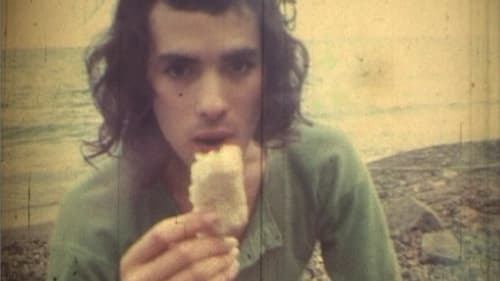
Positano is an island of the Amalfi Coast that Neptune would have, according to legend, created for the love of a nymph. Perched on the rocks of the island, the house of Frédéric Pardo and Tina Aumont became in 1968 a meeting place for the underground community. Pierre Clémenti stays there for a while and makes images of dazzling sensuality. Beyond Pierre Clémenti's intimate love of these faces and bodies often naked in this Mediterranean landscape, the film reveals the moving beauty of a utopia where living together could still be achieved in a territory of sharing and permanent creation. Flow of perceptions of consciousness, visual impressions, physical impregnations, the work of Pierre Clémenti is an ode to sensuality and "life-cinema".
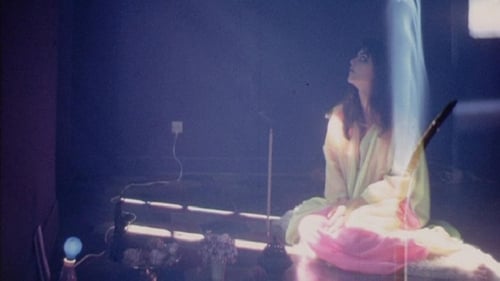
Himself
An experimental and poetic portrait of a woman.
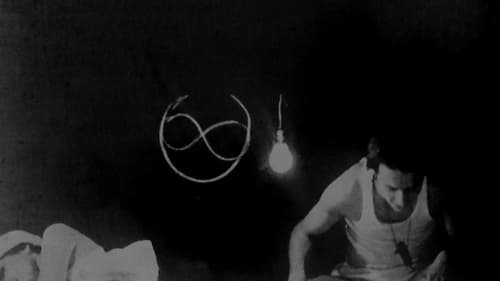
Art Direction
La Concentration features an androgynous young man (Jean-Pierre Léaud) and woman (Zouzou), dressed only in their underwear, locked in a room with a bed.

Editor
La Concentration features an androgynous young man (Jean-Pierre Léaud) and woman (Zouzou), dressed only in their underwear, locked in a room with a bed.

Producer
La Concentration features an androgynous young man (Jean-Pierre Léaud) and woman (Zouzou), dressed only in their underwear, locked in a room with a bed.

Writer
La Concentration features an androgynous young man (Jean-Pierre Léaud) and woman (Zouzou), dressed only in their underwear, locked in a room with a bed.

Director
La Concentration features an androgynous young man (Jean-Pierre Léaud) and woman (Zouzou), dressed only in their underwear, locked in a room with a bed.
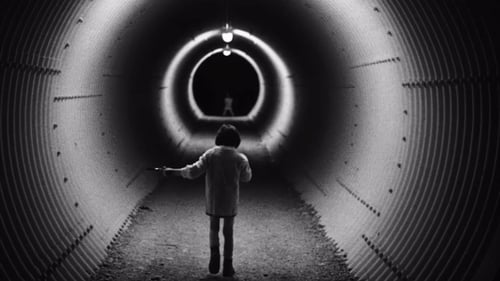
Editor
A 4-year-old child is the element from and around which the action develops, and brings sentiments and emotions to light.

Producer
A 4-year-old child is the element from and around which the action develops, and brings sentiments and emotions to light.

Writer
A 4-year-old child is the element from and around which the action develops, and brings sentiments and emotions to light.

Director
A film considered almost lost even by Garrel, who recently found his negatives. Shot during the events of the May 68, it was made collectively; the film is a merge of Garrel’s and his partners’ points of view, all of them students and filmmakers that participated in the revolt.

Director
A 4-year-old child is the element from and around which the action develops, and brings sentiments and emotions to light.
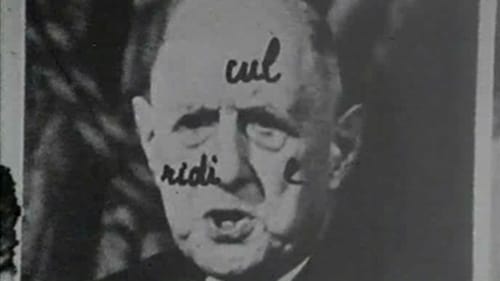
Director
A series of 41 documentary shorts, directed (without credit) by several famous French filmmakers and each running between two and four minutes. Each "tract" espouses a leftist political viewpoint through the filmed depiction of real-life events, including workers' strikes and the events of Paris in May '68.

Werther was one of the last feature films that Jean-Pierre Lajournade made for television. The Lajournade's version of Werther makes a critical rereading of Goethe's work through a challenge to bourgeois society.

The Son
The Father's Murder tells the day in the life of a young man who wants to kill his father at all costs.
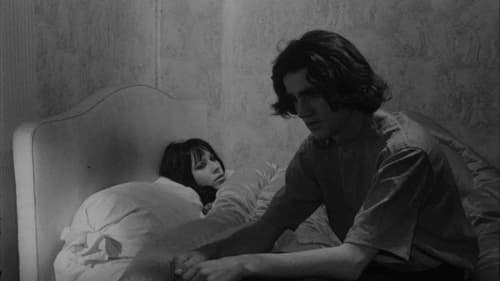
Editor
Parallel lives of two couples destined to suicide, one, and unhappiness, the other.

Producer
Parallel lives of two couples destined to suicide, one, and unhappiness, the other.

Writer
Parallel lives of two couples destined to suicide, one, and unhappiness, the other.

Director
Parallel lives of two couples destined to suicide, one, and unhappiness, the other.
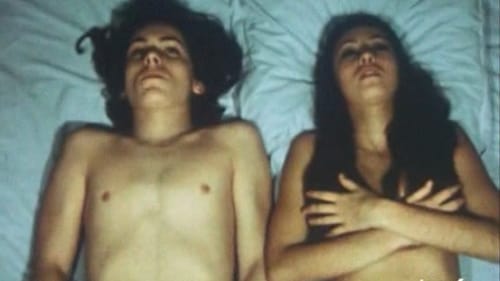
Writer
The portrait of a young girl from the Parisian bourgeoisie. As a brief shot indicates us, it could have been called "Portrait of the artist as a young girl." though probably "young girl" is just a previous title, but the style and the presence of the Father leaves no doubt about who paints and who's hiding behind the young girl.

Philippe, le réalisateur
The portrait of a young girl from the Parisian bourgeoisie. As a brief shot indicates us, it could have been called "Portrait of the artist as a young girl." though probably "young girl" is just a previous title, but the style and the presence of the Father leaves no doubt about who paints and who's hiding behind the young girl.

Director
The portrait of a young girl from the Parisian bourgeoisie. As a brief shot indicates us, it could have been called "Portrait of the artist as a young girl." though probably "young girl" is just a previous title, but the style and the presence of the Father leaves no doubt about who paints and who's hiding behind the young girl.

Director
Influenced and inspired by Jean-Luc Godard, some young french directors (Jean Eustache, Francis Leroi, Jean-Michel Barjol, Romain Goupil, Luc Moullet) are talking about their problems in producing less expensive and more free films in the french industry of cinema of the 60's.

Director
TV short for the ORTF.

Director
Short Philippe Garrel portrait of a young woman, Handa, who loves that which is decadent, complicated, precious, cannot stand simplicity, and detests people who watch television.

Director
Philippe Garrel interviews young people who have become rich on their thoughts about money and capitalism.

Director
TV short for the series Bouton Rouge.

Director
Pop films by Garrel.
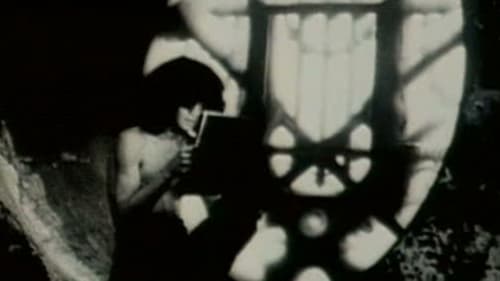
Director
Series of three short 'Pop Films' directed between 1966 - 67 for French television by Philippe Garrel. Includes footage of The Living Theater in rehearsal, interviews with Julian Beck and Judith Malina, Donovan in concert and The Who in the studio recording 'Pictures of Lily'. Re-broadcast on INA in 1984.

Series of three short 'Pop Films' directed between 1966 - 67 for French television by Philippe Garrel. Includes footage of The Living Theater in rehearsal, interviews with Julian Beck and Judith Malina, Donovan in concert and The Who in the studio recording 'Pictures of Lily'. Re-broadcast on INA in 1984.

Producer
A 17 year old boy goes on a trip with his father and his father's girlfriend.

Writer
A 17 year old boy goes on a trip with his father and his father's girlfriend.

Director
A 17 year old boy goes on a trip with his father and his father's girlfriend.
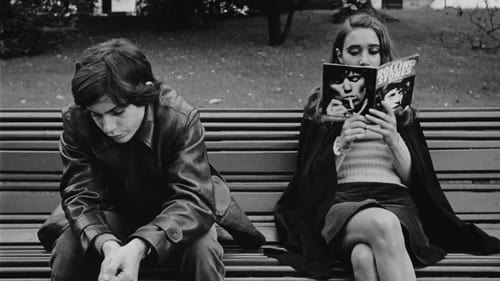
Writer
A young couple skip school to spend time together in a mansion.

Producer
A young couple skip school to spend time together in a mansion.

Editor
A young couple skip school to spend time together in a mansion.

Director
A young couple skip school to spend time together in a mansion.

From Gérard Courant's Cinématon series.



